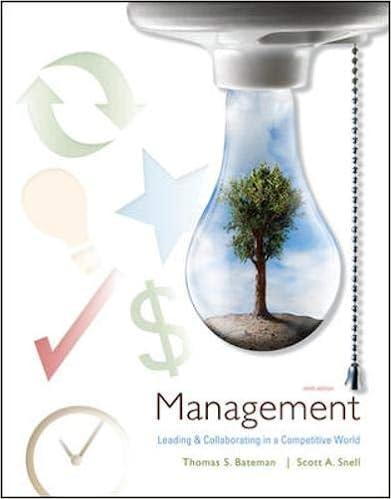The King Is Dead, Long Live the King. These indeed may be the very words echoed by
Question:
“The King Is Dead, Long Live the King.” These indeed may be the very words echoed by employees at American International Group, the world’s largest insurance company. Its legendary CEO Maurice “Hank” Greenberg, age 79, was deposed by AIG’s board of directors after Elliot Spitzer, New York State’s attorney general, leveled charges against the company for possibly manipulating its earnings. Headquartered in New York, AIG has been in business for nearly 90 years, has some $170 billion in market capitalization, and has approximately 80,000 employees worldwide. Greenberg, an attorney and a much heralded figure in the insurance business, worked at AIG for more than four decades. In 1967, he became president, replacing company founder Cornelius Vander Starr. Greenberg transformed the company from a midlevel insurance company into a major international player. With a reputation as an autocratic leader, Greenberg was known to scream at employees. One source likened Greenberg’s tenure to a “reign of terror.” Another source offered insights to Greenberg’s leadership and managerial style: He “calls employees with detailed questions about contracts and other minutiae.” At one meeting in the late 1990s, he told a high-ranking manager: “This is one of the worst presentations I’ve seen in years . . . Go back, get your stuff and don’t come back until you can tell me something I don’t already know.” Greenberg also had trouble with his sons, Jeffrey and Evan, when they worked for him at AIG. Jeffrey, the older of the two, worked there for 17 years before quitting in 1995; Evan, who had been designated as his father’s successor at AIG, resigned a few years later, in 2000. In some circles people believed their father “pushed” his sons too much by expecting more from them than from other company executives. His sons—Evan, in particular—were concerned about their father’s so-called succession plan. Apparently, the senior Greenberg had given only lip service to the idea of succession with no intention of retiring any time soon. In early March 2005, AIG’s board of directors replaced Greenberg with 50-year-old vice chairman and co–chief operating officer (COO) Martin Sullivan, who had worked at the company and for Greenberg in various capacities for more than 30 years. His years in the company made him the consummate insider to lead the company. However, like Greenberg, he was considered a micromanager, known to get involved in some of the nitty-gritty deal-making instead of enabling subordinates to play that role. Had he continued micromanaging instead of delegating, he might have created some serious problems for himself and the company. Yet, despite any managerial similarities to his former boss, staff viewed him as more pleasant and more amicable. One source stated that his “greatest strength is the respect he gets from people who work for him . . . He doesn’t scream and shout like Mr. Greenberg.”
QUESTIONS
1. AIG chairman and CEO Maurice “Hank” Greenberg was considered an autocratic leader and a micromanager by many employees, yet the company grew dramatically during his reign as CEO. Does leadership style matter as long as the company performs well and shareholders are satisfied with their return on investment?
2. AIG’s CEO Sullivan was labeled a micromanager, but with a more pleasant personality. Could he, as a micromanager, have developed a more participative leadership style? How?
3. Greenberg named his son Evan as the heir apparent. Yet Greenberg never set a departure date. Should a good leader set a date for departure? When should he name a successor?
Step by Step Answer:

Management Leading And Collaborating In The Competitive World
ISBN: 9780078137242
9th Edition
Authors: Thomas Bateman, Scott Snell





